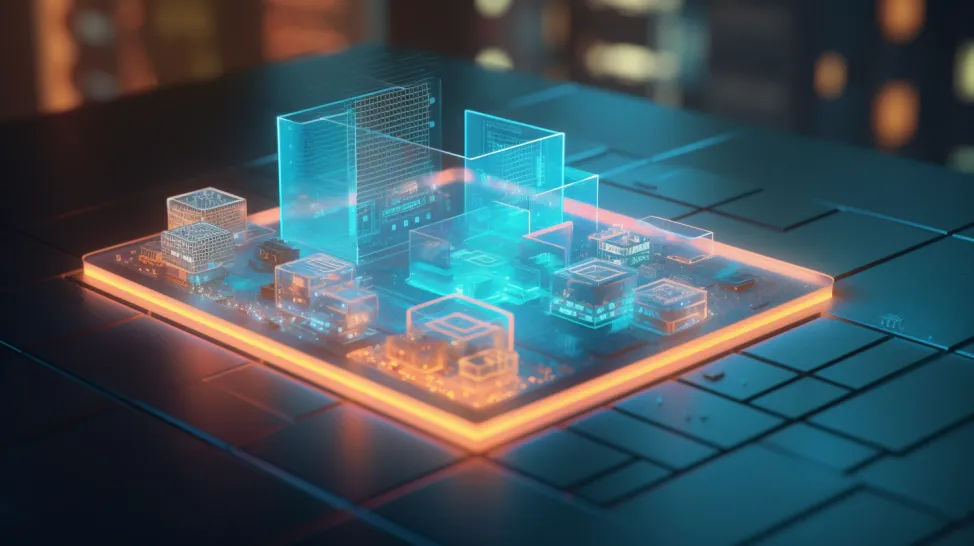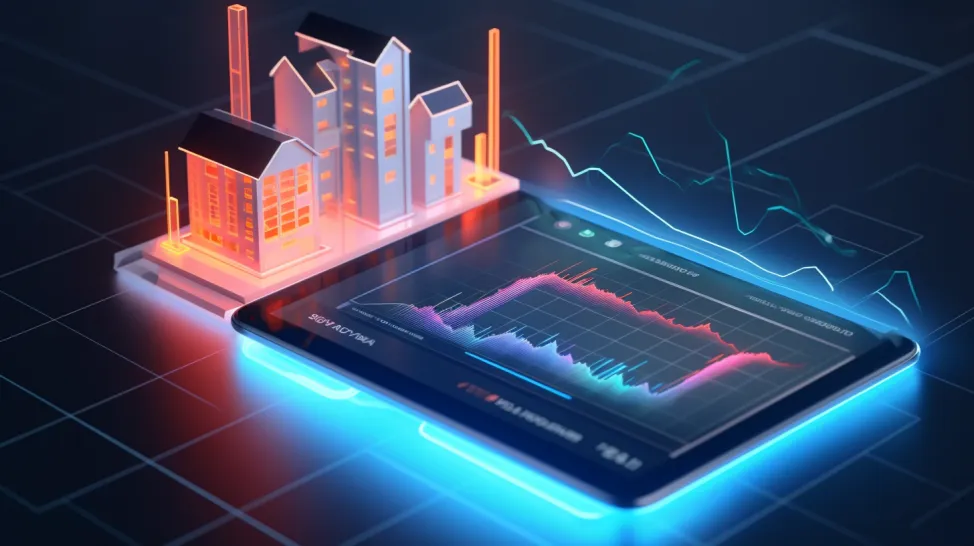The tokenization of real estate is an emerging trend that has the potential to revolutionize the way people invest in and manage property assets. Tokenization refers to the process of converting physical real estate assets into digital tokens, which represent fractional ownership of the property.
These digital tokens can be traded, bought, and sold on blockchain platforms, opening up a world of opportunities for investors and property owners alike. The innovative use of blockchain technology and smart contracts in tokenizing real estate brings increased transparency, security, and efficiency to the market, addressing some of the long-standing challenges faced by traditional real estate investment models.
Understanding the concept of tokenizing real estate is crucial for industry professionals, investors, and anyone interested in the future of property investment. As this trend gains traction, it is essential to be well-informed and prepared for the impact it will have on the real estate landscape.
In this article, we will delve into the benefits of tokenizing real estate, the role of Web3 technology and smart contracts, the risks and challenges involved, and how to stay informed and adapt to this new frontier in real estate investment.
Increased Liquidity and Fractional Ownership: Breaking Down Barriers in the Real Estate Market
Step into the world of fractional ownership, where the once-exclusive realm of real estate investment is transformed into a more accessible and inclusive space. Discover how increased liquidity is redefining the market and opening doors to new opportunities.
- Traditional Barriers in the Real Estate Market:
The real estate market has long been known for its high entry barriers, limited liquidity, and slow transaction processes. These challenges have often deterred potential investors, particularly those with limited capital, from participating in the market. The requirement for substantial upfront investment, extensive paperwork, and the illiquid nature of property assets have made real estate an exclusive domain for the privileged few. - Tokenization: Paving the Way for Fractional Ownership:
Tokenizing real estate addresses many of these challenges by allowing for fractional ownership of properties. With tokenization, a property can be divided into numerous digital tokens, each representing a small percentage of the asset’s value. Investors can now purchase these tokens, effectively owning a share of the property without the need for a large initial investment. This democratization of property ownership opens up the real estate market to a broader range of investors, including those with limited financial resources. - Impact on Liquidity and Investment Accessibility:
The fractional ownership enabled by tokenization significantly enhances the liquidity of real estate assets. Token holders can easily trade their tokens on digital marketplaces, enabling them to buy, sell, or exchange their share of the property much faster than in traditional real estate transactions. This increased liquidity, combined with the lower entry barriers, results in a more inclusive and accessible real estate investment landscape, benefiting both seasoned investors and newcomers alike. The tokenization of real estate ultimately has the potential to transform the market into a more open, efficient, and dynamic space for all.
Web3 Technology and Smart Contracts: Pioneering Real Estate Tokenization
Embark on a journey to explore the cutting-edge world of Web3 technology and smart contracts. Uncover how these innovative tools are revolutionizing the real estate sector and laying the groundwork for a tokenized future.
- The Role of Blockchain in Tokenizing Real Estate:
Blockchain technology plays a pivotal role in the tokenization of real estate by providing a secure, transparent, and efficient platform for property asset management. The decentralized nature of blockchain allows for the creation and transfer of digital tokens without the need for intermediaries. This reduces transaction costs, minimizes delays, and enhances the overall investment experience. Furthermore, blockchain’s immutable ledger ensures that all transactions are recorded accurately, providing a clear, tamper-proof history of ownership, which is crucial for maintaining trust in the real estate market. - Smart Contracts for Secure Transactions:
Smart contracts are self-executing contracts with the terms of the agreement directly written into lines of code. In the context of tokenizing real estate, smart contracts can be utilized to automate and secure various aspects of property transactions, such as the issuance of tokens, transfer of ownership, and distribution of rental income. This automation not only streamlines the investment process but also eliminates human errors and potential disputes, ensuring a more secure and efficient transaction experience for all parties involved. - Benefits of Decentralized Platforms in the Real Estate Industry:
Decentralized platforms offer numerous advantages to the real estate industry, including increased accessibility, enhanced liquidity, and improved risk management. By tokenizing real estate assets, investors can easily access investment opportunities worldwide, diversifying their portfolios and spreading risk across multiple properties. Tokenization also enables fractional ownership, which allows investors to buy and sell smaller stakes in properties, leading to greater liquidity and more dynamic markets. Finally, decentralized platforms facilitate a more inclusive real estate ecosystem by lowering the barriers to entry and creating opportunities for smaller investors to participate in the market, ultimately contributing to a more diverse and robust industry.
Risks and Challenges: Navigating the Tokenization Landscape
While the tokenization of real estate promises a world of potential, it also comes with its share of risks and challenges. Dive deep into the complexities of this evolving landscape and learn how to stay afloat in the turbulent waters of tokenization.
- Regulatory Uncertainty Surrounding Tokenization:
Despite the promising potential of tokenized real estate, the industry still faces regulatory uncertainty. The legal frameworks surrounding tokenization are not yet fully developed, and jurisdictions around the world are grappling with how to classify and regulate these digital assets. As a result, there may be challenges in complying with existing securities laws, anti-money laundering (AML) regulations, and know-your-customer (KYC) requirements. This regulatory ambiguity can pose difficulties for both investors and property owners, who must navigate a complex and ever-evolving legal landscape. - Security Vulnerabilities in Blockchain Technology:
While blockchain technology offers significant advantages in terms of transparency, security, and immutability, it is not immune to vulnerabilities. Cybersecurity threats, such as hacking and data breaches, can still occur in tokenized real estate platforms. Additionally, smart contracts, which are the foundation of tokenization, can sometimes contain errors or vulnerabilities that could be exploited by malicious actors. It is crucial for tokenization platforms to implement robust security measures and continually monitor and update their systems to mitigate these risks. - Standardization Issues in the Tokenization Process:
The tokenization of real estate is still a nascent industry, and there is currently a lack of standardization in the process. The absence of universally accepted protocols and standards for tokenizing real estate assets can lead to inconsistencies and potential issues when transferring or trading tokens across different platforms. Industry participants must work together to develop and adopt common standards that facilitate seamless and secure transactions, thereby fostering greater confidence and trust in the tokenization process.
Staying Informed and Adapting to Tokenized Real Estate
As the tokenized real estate wave surges forward, staying informed and adapting to change is crucial for success. Join us in exploring strategies for staying ahead of the curve and embracing the opportunities that lie within this transformative movement.
The Importance of Staying Updated on Industry Developments
As the world of tokenized real estate continues to evolve, it is crucial for investors, property owners, and industry professionals to stay updated on the latest developments and trends. Keeping abreast of new advancements allows stakeholders to make well-informed decisions, capitalize on emerging opportunities, and mitigate potential risks. Additionally, a deep understanding of the rapidly changing landscape helps industry professionals adapt their strategies, ensuring they remain competitive in this innovative market.
Resources for Learning about Tokenized Real Estate
To stay informed about tokenized real estate, several resources can be leveraged to gain knowledge and insight. These include:
- Industry Blogs and News Websites:
Regularly following reputable blogs and news websites that cover blockchain technology, Web3, and tokenized real estate can provide timely information on the latest developments and trends. - Online Courses and Webinars:
Many educational platforms offer courses, webinars, and workshops on blockchain technology and tokenization, allowing learners to gain a deeper understanding of the underlying concepts and their applications in the real estate sector. - Research Papers and Reports:
Academic research papers, industry reports, and whitepapers provide in-depth analysis and insights into the world of tokenized real estate, highlighting potential opportunities and challenges. - Social Media and Networking Platforms:
Joining relevant groups, forums, and communities on social media platforms and professional networking sites can help you connect with like-minded individuals, share information, and learn from their experiences.

Collaboration with Experts and Other Industry Professionals
Collaborating with experts and other industry professionals is a valuable way to stay informed and adapt to the tokenized real estate market. Engaging with peers through conferences, meetups, and online forums can foster knowledge sharing, stimulate new ideas, and create opportunities for partnerships.
By connecting with experts who specialize in blockchain technology, Web3, and tokenization, stakeholders can gain insights into best practices, potential pitfalls, and innovative solutions, ultimately positioning themselves for success in the tokenized real estate market.
The Future of Real Estate Investment
Tokenizing real estate has the potential to transform the property investment landscape, offering benefits such as increased liquidity, broader market access, and enhanced transparency. The use of blockchain technology and smart contracts in tokenizing real estate assets paves the way for a more efficient and secure investment process, addressing some of the long-standing challenges faced by traditional real estate investment models.
Adapting to the New Frontier
As the tokenization of real estate becomes more prevalent, it is essential for investors, industry professionals, and property enthusiasts to stay informed and adapt to this emerging trend. By understanding the underlying technology, potential risks, and legal implications, individuals and businesses can make informed decisions and seize the opportunities presented by this new frontier in real estate investment.
The tokenization of real estate is not just a passing fad; it represents a significant shift in the way people invest in and manage property assets. Embracing this change and staying abreast of the latest developments will be crucial for success in the ever-evolving world of real estate investment.






